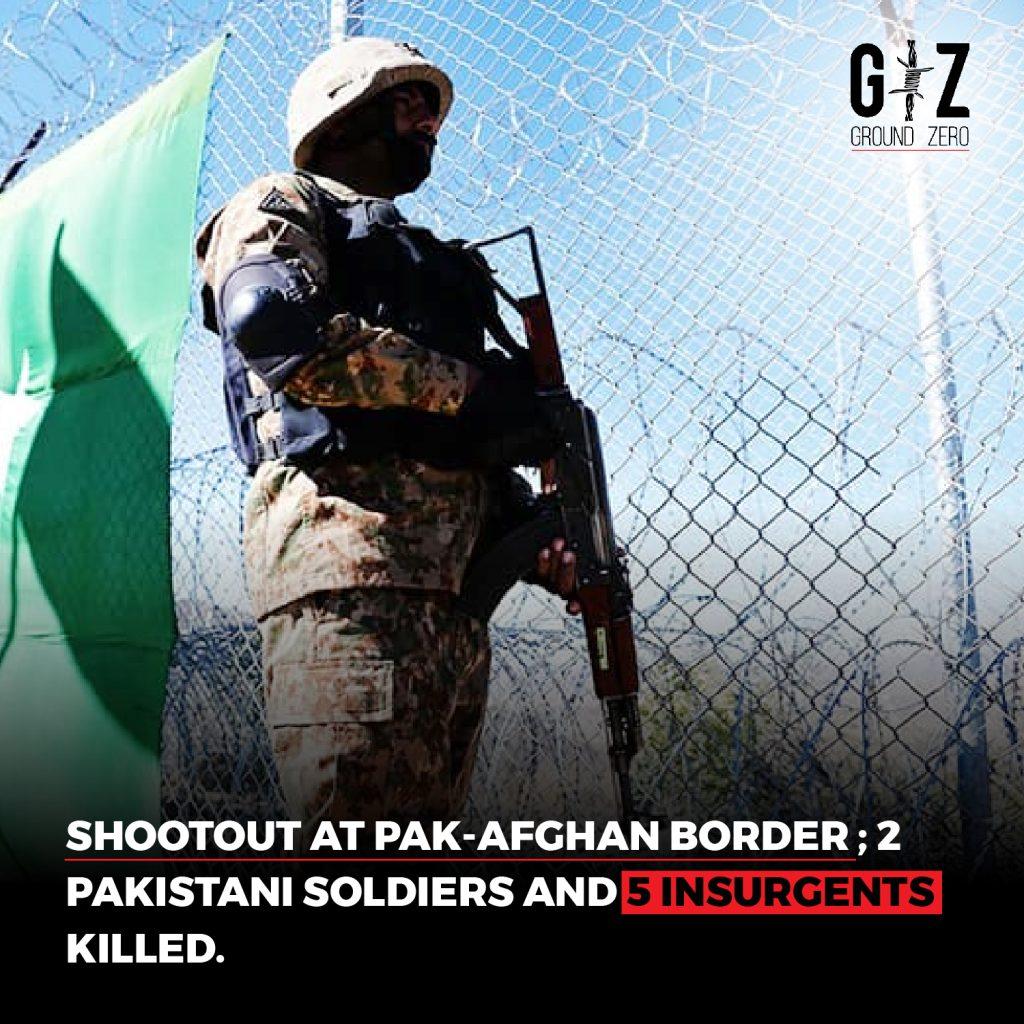An army major, a junior officer, and five militants were killed in a gunfight that began when a group of Pakistani Taliban assaulted forces during an operation against terrorists on the Afghan border on Monday, according to the military spokesperson. The shooting took place in Baluchistan province’s Zhob district. The Pakistani Taliban claimed responsibility for the attack on the soldiers.
Tehrik-e-Taliban Pakistan, also known as TTP, is a distinct organization that is associated with the Afghan Taliban. The Afghan Taliban seized Afghanistan in August 2021 as U.S. and NATO forces were about to leave the nation after 20 years of conflict.
The Pakistani Taliban have increased their attacks against police and soldiers across the nation, particularly Baluchistan, as a result of the Taliban’s takeover of Afghanistan.
Local separatist organizations that have been engaged in a low-level insurgency for more than two decades also support the TTP. Baluchi nationalists initially fought for a larger portion of the province’s wealth, but subsequently, their rebellion evolved into a struggle for freedom from the Islamabad administration.
Surge in militant attacks
Pakistan has experienced a major increase in insurgent attacks since the Taliban took over the neighboring nation in August 2021, which has resulted in the deaths of hundreds of security personnel and civilians. Officials claim that after the Taliban took control, TTP leaders and other members have relocated their operation bases to Afghanistan, where they have more flexibility to roam around.
Tensions between Islamabad and the de facto Taliban authorities in Kabul are mostly being caused by the uptick in TTP-led assaults in Pakistan, despite claims that Afghan citizens have also participated in some of the most recent suicide bombers and other terrorist raids.
According to reports, the Taliban told the members of a Durrani-led delegation to Kabul last month that the Afghans had taken various measures to “neutralize” the insurgent activities and had apprehended 200 TTP members for their involvement in cross-border operations. However, according to Pakistani officials, the steps did not result in a decrease in attacks.
TTP claims to be a Pakistani branch of the Afghan Taliban, and its officials swear loyalty to Hibatullah Akhudzada, the top Taliban official in Kabul.
The Pakistani government ordered all illegal immigrants, including more than 1.7 million Afghans, to leave the country by November 1 or risk deportation as a result of the Taliban bloodshed this week. The Taliban criticized the action and urged Islamabad to reconsider its choice.
At a graduation ceremony at the police school in the Afghan capital, Taliban Defense Minister Muhammad Yaqoob said, “Pakistan’s decision to expel Afghans is unjustifiable and inhumane, and we condemn it.”
Durrani attempted to minimize concerns by claiming that Pakistan and Afghanistan “enjoy a symbiotic relationship” and that any conflicts were merely “rivalries between cousins” in accordance with regional customs. “However, that does not imply that we are now at war. Not at all.”
Foreign ministers meet
Meanwhile, Pakistani Foreign Minister Jalil Abbas Jilani and his Taliban counterpart, Amir Khan Muttaqi, met on the sidelines of a China-hosted international conference on October 5.
The office of Jilani in Islamabad reported that he “underscored that challenges confronting regional peace and stability be addressed in a collaborative spirit through collective strategies.”
According to Muttaqi’s spokesman, the two parties addressed bilateral trade as well as issues affecting Afghan businessmen and refugees in Pakistan. Jilani received a warning from the Taliban foreign minister that “negative media statements, obstacles to transit trade, and harassing Afghan refugees” might have a detrimental impact on relations between the two sides.
Through its land and seaports, Pakistan gives the landlocked nation of Afghanistan access to global markets.
Under its Afghan transit trade deal with Kabul, Islamabad last week prohibited more than 200 items that were “prone to smuggling” and imposed a 10% processing fee on commercial commodities brought into Afghanistan via Pakistan.
The Taliban are upset by the limitations and have requested Pakistani authorities to lift them, saying that doing so would hamper cross-border trade and transit cooperation.
A huge surge in transit trade has occurred since the Taliban took control of Afghanistan two years ago, which is how Pakistan also trades with landlocked Central Asian nations.


